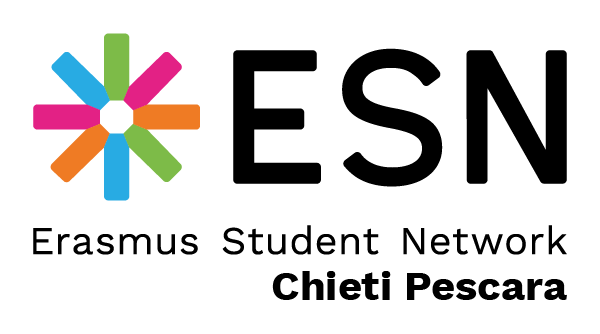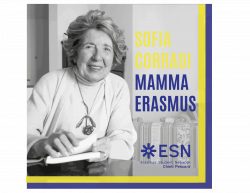Quest’anno abbiamo la fortuna di poter festeggiare nello stesso giorno due ricorrenze davvero importanti: la Festa della Mamma, la persona più importante della nostra vita, e la festa dell’Europa, che è, in un certo senso, la mamma del progetto Erasmus.
Il 9 maggio 1950, difatti, ebbe luogo la presentazione da parte di Robert Schuman, “padre dell’Europa”, del piano di cooperazione economica che segna l’inizio di un processo di integrazione europea con l’obiettivo di una futura unione federale. Nella stessa data, avvenne la fine della Seconda guerra mondiale nonché la caduta definitiva del nazifascismo. Questa data ha segnato l’inizio di un programma volto al mantenimento della pace che è tutt’ora in atto.
Il programma Erasmus si è sempre impegnato per far fronte a questo obiettivo, basandosi sul principio della stima e della fiducia reciproca, della promozione della pace attraverso l’amicizia tra i giovani di Paesi diversi e la democratizzazione del diritto allo studio, offrendo agli studenti un’esperienza formativa all’estero. Come la nostra Europa può riconoscere in Schuman una figura paterna, il progetto Erasmus può riconoscere in Sofia Corradi una figura materana. Sofia Corradi, “mamma Erasmus” è stata difatti l’ideatrice del progetto Erasmus. Classe 34, “mamma Erasmus” è una pedagogista che durante i suoi studi universitari ha vinto una borsa di studio negli Stati Uniti, a Fulbright. Una volta rientrata a Roma, ha concepito l’idea in quanto l’università non le ha riconosciuto il master conseguito negli USA. Dopo la laurea, diventa consulente scientifico della associazione dei Rettori delle Università Italiane e nel 1969 propone la sua prima bozza del progetto Erasmus: “Lo studente, anche se non appartenente a famiglia residente all'estero, può chiedere di svolgere parte del suo piano di studio presso università straniere, presentandolo all’approvazione del Consiglio di Facoltà in preventivo. Il Consiglio di Facoltà potrà dichiarare l'equivalenza, che diventerà effettiva dopo che lo studente avrà prodotto la documentazione degli studi compiuti all’estero”. Nello stesso anno, il Ministro della Pubblica Istruzione Aggradi adotta il memorandum della Corradi come base del disegno di legge per la riforma delle Università Italiane, sottolineando l’apertura europea ed internazionale dell’Italia come esempio per le altre nazioni. Purtroppo, il disegno di legge non viene approvato alla Camera. Tuttavia, nel 1976 la nascente Comunità Economica Europea, che incoraggiava gli scambi tra università di diverse nazioni, promuove tale modello di mobilità con riconoscimento dei crediti che nel 1987 sarebbe diventato finalmente il Programma Erasmus.
La Corradi racconta di un iter di 19 anni veramente lungo e faticoso, durante il quale ha continuato ad immaginare la libera circolazione degli studenti europei, un sistema di mobilità che si scontrava con l’invalicabile muro di burocrazia e difficili pregiudizi da abbattere. Grazie alla sua idea, dal 1987 più di 5 milioni di studenti hanno avuto l’occasione di poter viaggiare per le università europee, contribuendo a quell’ideale di pace, di amicizia e fiducia reciproca fra stati europei, di promozione della cittadinanza europea e della formazione di un’Europa unita e senza confini, volta alla condivisione e al confronto. “Mamma Erasmus” ha dovuto lottare faticosamente per il riconoscimento di questa sua idea, proprio come le nostre mamme hanno dovuto portarci in grembo per 9 mesi, per arrivare poi a quel fatidico giorno che risulta essere allo stesso tempo il più bello ed il più doloroso della loro vita: quello di mettere al mondo noi figli. Con la realizzazione del Progetto Erasmus, tutti noi che abbiamo e avremo l’occasione di far parte di questo progetto potremo onorare ciò che la Corradi aveva sempre desiderato, proprio come una mamma che guarda suo figlio crescere e realizzarsi, “Mamma Erasmus” guarda la sua idea realizzarsi, coinvolgere sempre più persone e donare a tanti ragazzi l’esperienza più bella della loro vita: la possibilità di stravolgere la propria quotidianità, di stringere amicizie che dureranno a distanza di anni, di imparare e perfezionare una lingua che non ci appartiene ma che inizierà ad essere parte della nostra quotidianità, di aprire la nostra mente a nuove culture, abitudini e modi di vivere e di vivere esperienze che non avremo mai potuto immaginare.
. . . .
This year we are lucky enough to celebrate two significant anniversaries on the same day: Mother's Day, the most important person in our lives, and Europe's Day, which is, in a sense, the mother of the Erasmus project.
In fact, on 9 May 1950, Robert Schuman, the "father of Europe", presented the economic cooperation plan that marked the beginning of a European integration process with the aim of a future federal union. On the same date, the end of the Second World War and the definitive fall of Nazi-Fascism took place. This date marked the beginning of a program aimed at maintaining the peace that is still in progress.
The Erasmus program has always been committed to meeting this goal, based on the principle of mutual esteem and trust, promoting peace through friendship between young people from different countries and the democratization of the right to study, offering students a training experience abroad. Just as our Europe can recognize Schuman as a father figure, the Erasmus project can recognize Sofia Corradi as a maternal figure. Sofia Corradi, "Erasmus mom" was the creator of the Erasmus project. Born in 1934, she is a pedagogist who, during her university studies, won a scholarship in the United States in Fulbright. Once back in Rome, she conceived her idea as the university did not recognize her master's degree in the USA. After graduation, she became a scientific advisor to the Association of Rectors of Italian Universities. In 1969 she proposed his first draft of the Erasmus project: "The student, even if he does not belong to a family residing abroad, can ask to carry out part of his study at foreign universities, submitting it to the approval of the Faculty Council in advance. The Faculty Council will be able to declare the equivalence, which will become effective after the student has produced the documentation of the studies completed abroad ". In the same year, the Minister of Education Aggradi adopted the Corradi memorandum as the basis of the bill for the reform of Italian universities, underlining Italy's European and international openness as an example for other nations. Unfortunately, the bill is not approved in the House. However, in 1976 the nascent European Economic Community, which encouraged exchanges between universities of different countries, promoted this mobility model with credit recognition which in 1987 would finally become the Erasmus Program.
Corradi tells of a long and tiring 19-year process, during which she continued to imagine the free movement of European students. This mobility system clashed with the impassable wall of bureaucracy and difficult prejudices to break down. Thanks to his idea, since 1987, more than 5 million students have had the opportunity to travel to European universities, contributing to that ideal of peace, friendship and mutual trust between European states, the promotion of European citizenship and the formation of a united and borderless Europe, aimed at sharing and confrontation. "Mom Erasmus" had to struggle hard for the recognition of this idea, just like our mothers had to carry us for nine months, to then arrive at that fateful day which turns out to be the most beautiful and the most painful at the same time of their life: that of bringing us children into the world. With the realization of the Erasmus Project, all of us who have and will have the opportunity to be part of this project will be able to honour what Corradi had always wanted, just like a mother who watches her child grow and become fulfilled, "Mom Erasmus" looks at his idea to come true, to involve more and more people and to give many young people the most beautiful experience of their lives: the possibility of upsetting their daily lives, of making friendships that will last years later, of learning and perfecting a language that does not belong to us but that will begin to be part of our daily life, to open our minds to new cultures, habits and ways of living and experiencing experiences that we could never have imagined.



Follow us